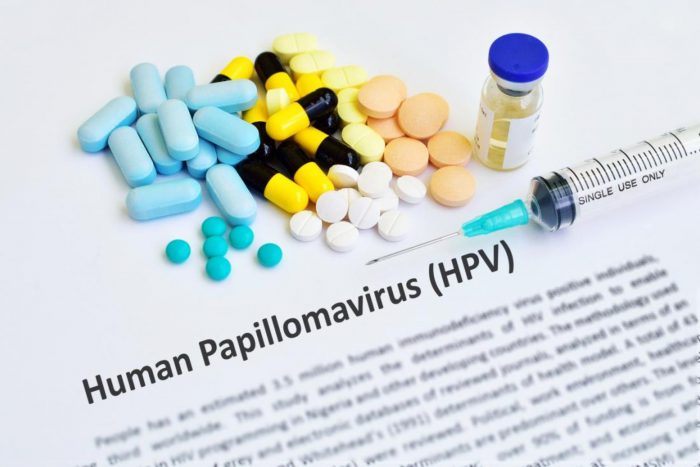
Diagnosing HPV Infection
The presence of genital warts can often lead to a diagnosis of HPV infection. However, if genital warts are not visible, doctors may need to perform further tests to confirm the diagnosis.
These include:
- Vinegar (acetic acid) solution test – A vinegar solution applied to HPV-infected genital areas can cause lesions to turn white, making it easier to identify them.
- Pap test – A sample of cells from the cervix or vagina is collected and sent to a laboratory for analysis. Pap smears are able to detect early precancerous changes.
- DNA test – This test is conducted on cervical cells to detect the DNA of high-risk HPV varieties linked to genital cancers. It is recommended for women over the age of 30 years, along with the Pap test.
Treating HPV Infection
While there is no cure for HPV, warts may disappear on their own, especially in children. However, in cases where warts persist or cause discomfort, several treatment options are available, including:
Medications
Topical medications require several applications before they show any results. Examples of these treatments include:
- Salicylic acid – Over-the-counter treatments containing salicylic acid work by gradually removing layers of a wart. This drug can lead to skin irritation. Therefore, you should not apply it to your face.
- Imiquimod – This prescription cream may enhance the immune system’s ability to fight HPV. Two commonly reported side effects of imiquimod are erythema and edema.
- Podofilox – This is another topical prescription that works by destroying genital wart tissue. It may cause burning and itching at the application site.
- Trichloroacetic acid – This substance is able to physically burn off the warts on different parts of the body. Note that it may lead to mild irritation
Surgical and Other Procedures
If medications do not work, doctors may recommend one of the following methods to remove the warts:
- Cryotherapy (i.e., freezing the warts with liquid nitrogen)
- Burning with an electrical current (electrocautery)
- Surgical removal
- Laser surgery
Treating HPV Infection in the Cervix
If an abnormal HPV or Pap test is detected, a gynecologist will perform a colposcopy procedure. This involves using a colposcope, which is an instrument that provides a magnified view of the cervix, to examine any areas that appear abnormal and take biopsy samples. If the pathologist detects any precancerous lesions, he/she will recommend their removal.
Treatment options include:
- Freezing (cryosurgery)
- Laser surgery
- Surgical removal
- Loop electrosurgical excision procedure (LEEP)
- Cold knife conization, which involves surgically removing a cone-shaped piece of the cervix
Takeaway Message
Diagnosing and treating HPV infection involves several options, depending on the severity of the condition. There are also many great ways to build your immune system to fight infections naturally. Eat a healthy diet, get plenty of sleep, and take the HPV supplement AHCC that has been proven to fight high risk HPV infections.
Speak with your doctor to determine the best course of treatment for your case.






